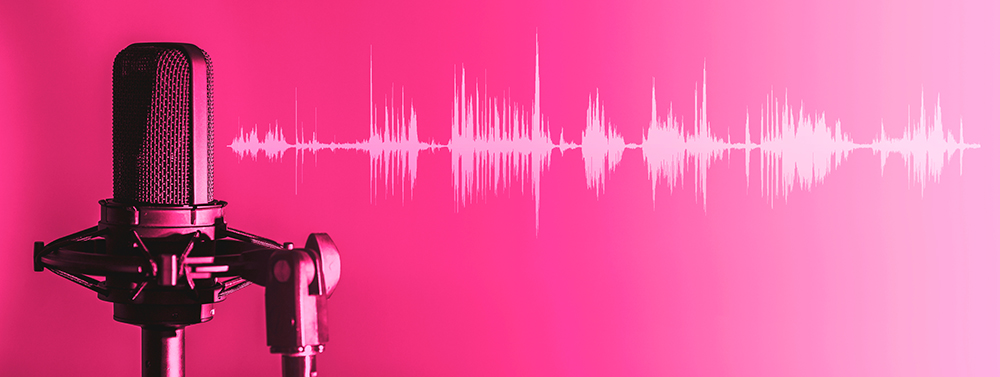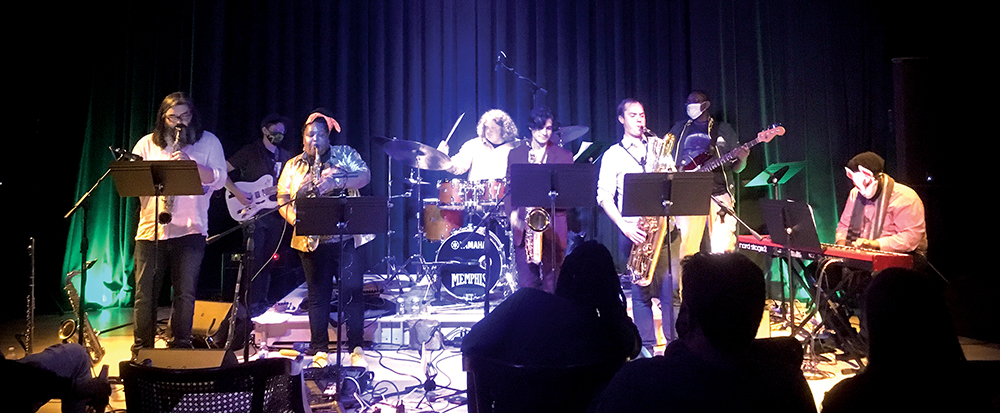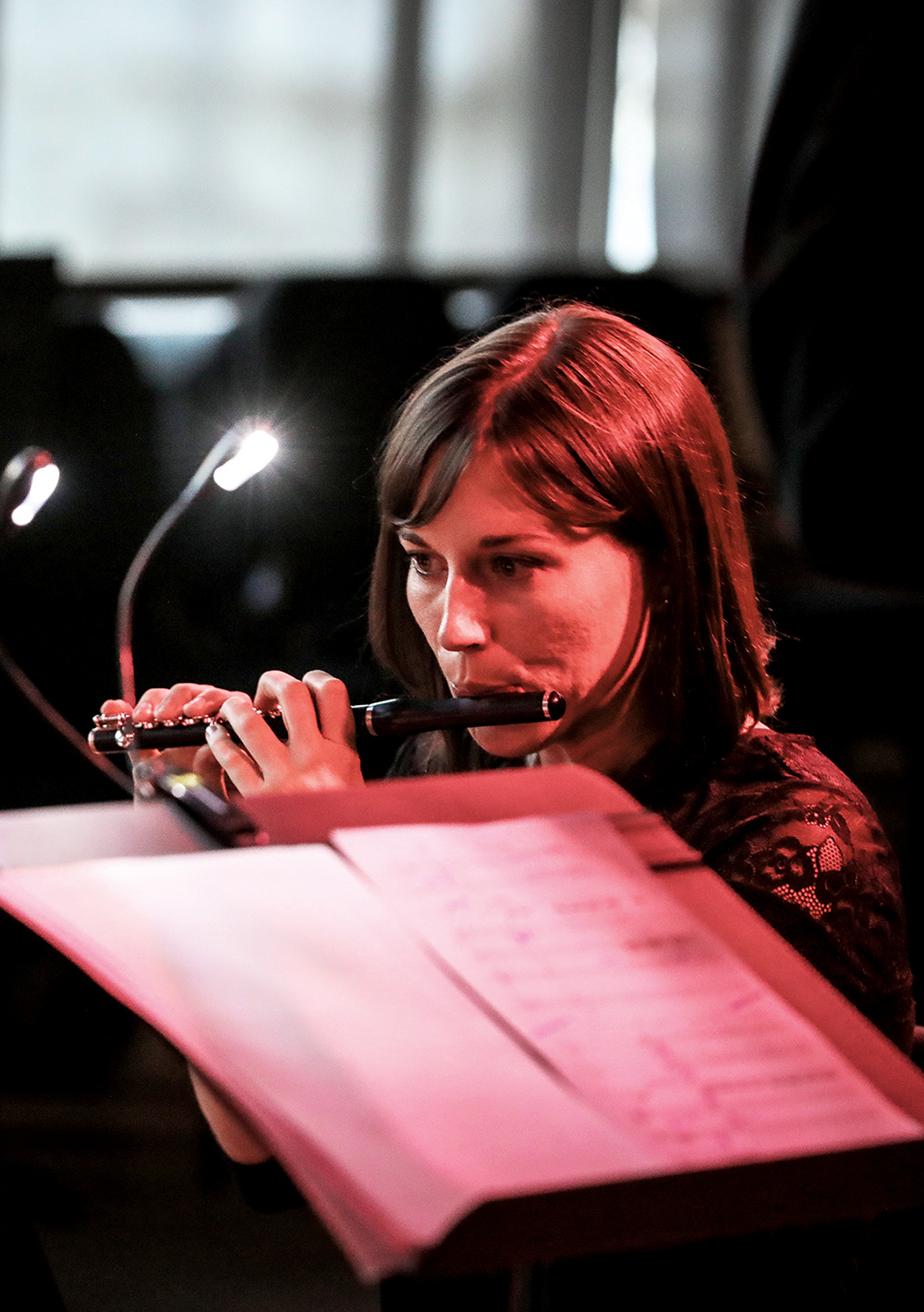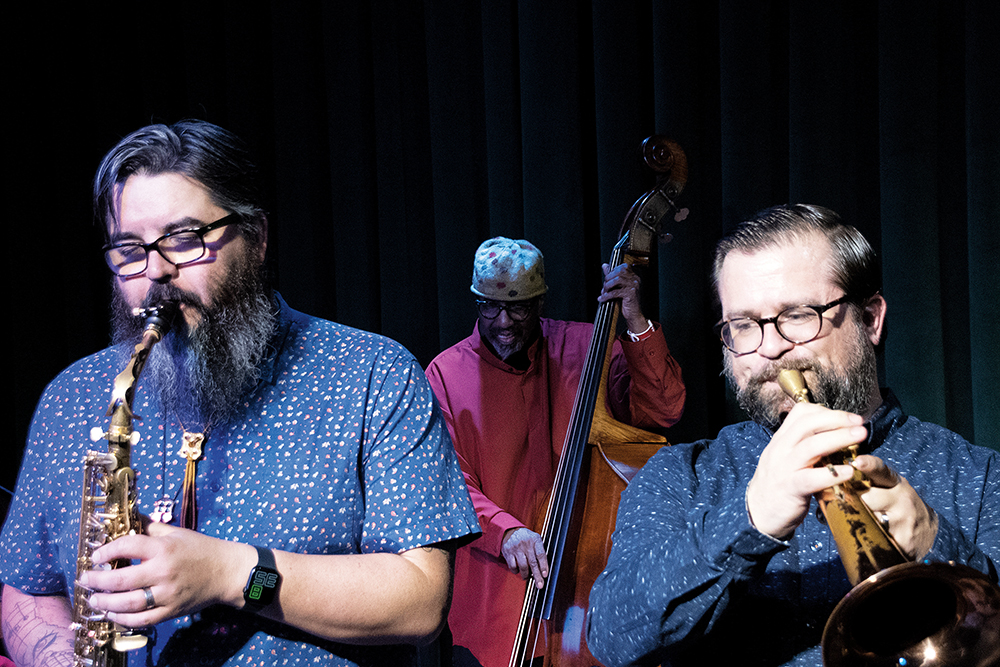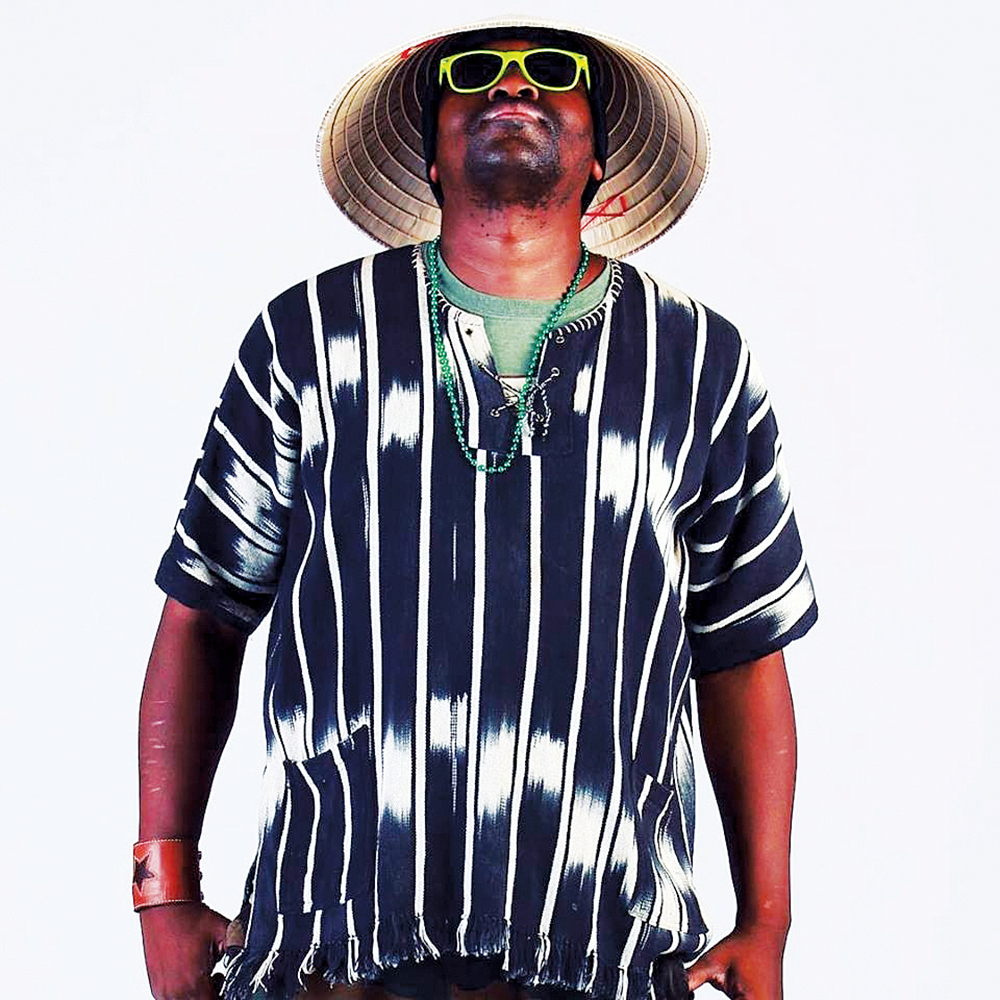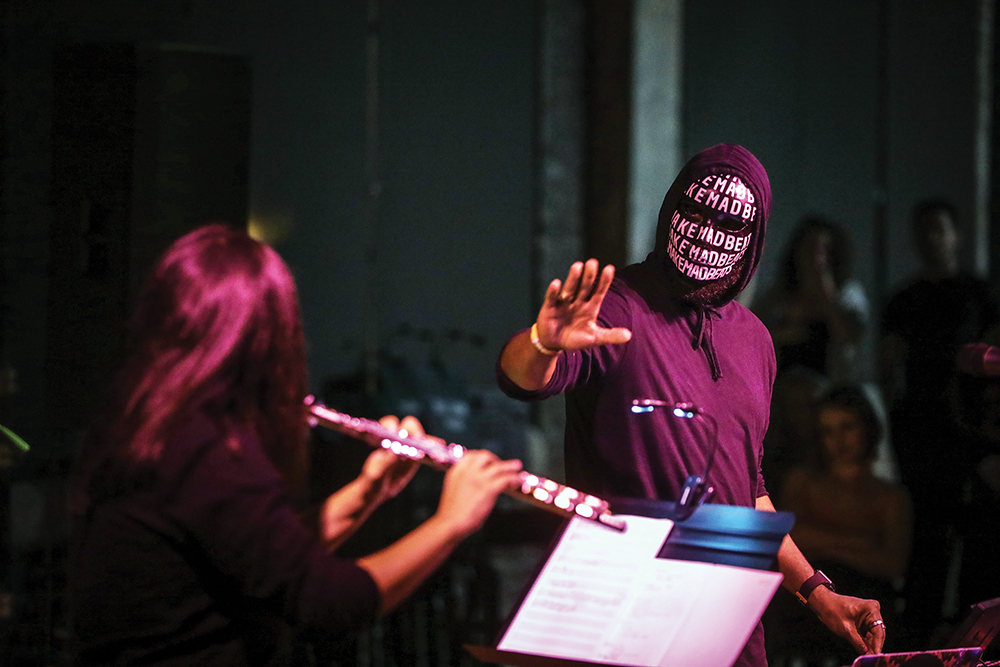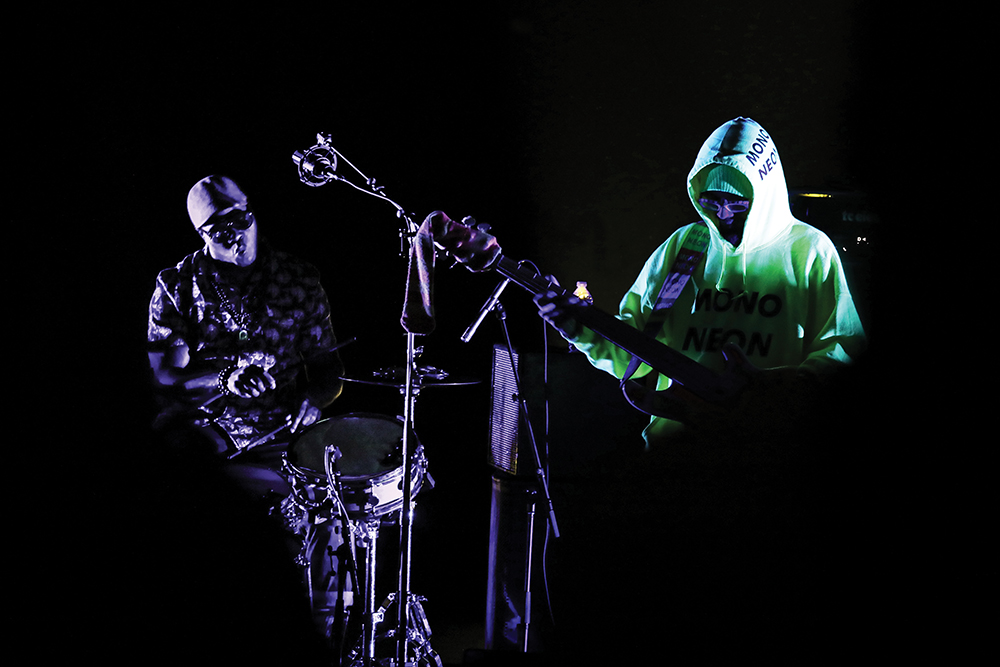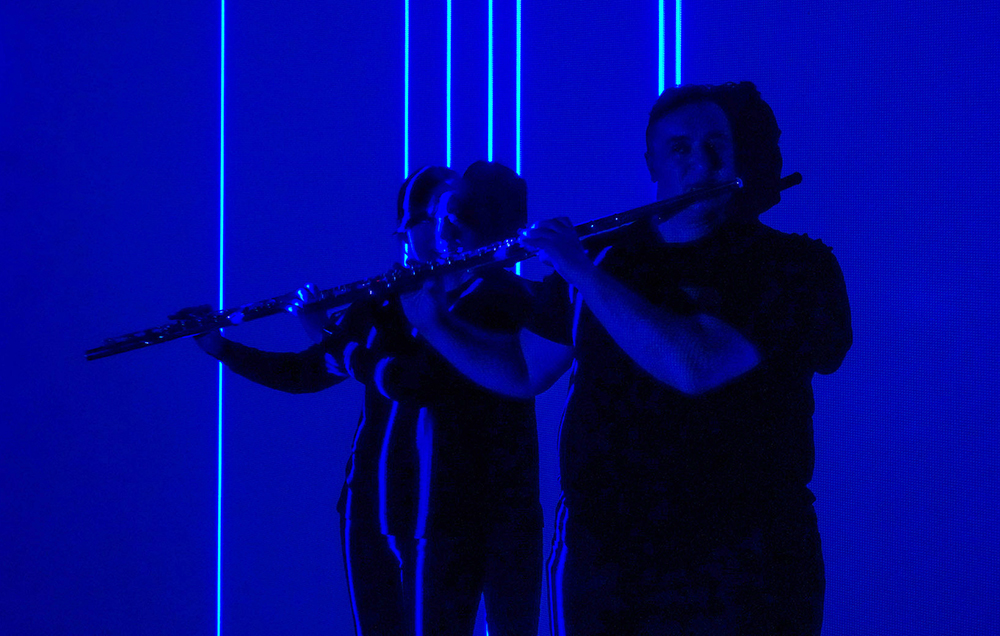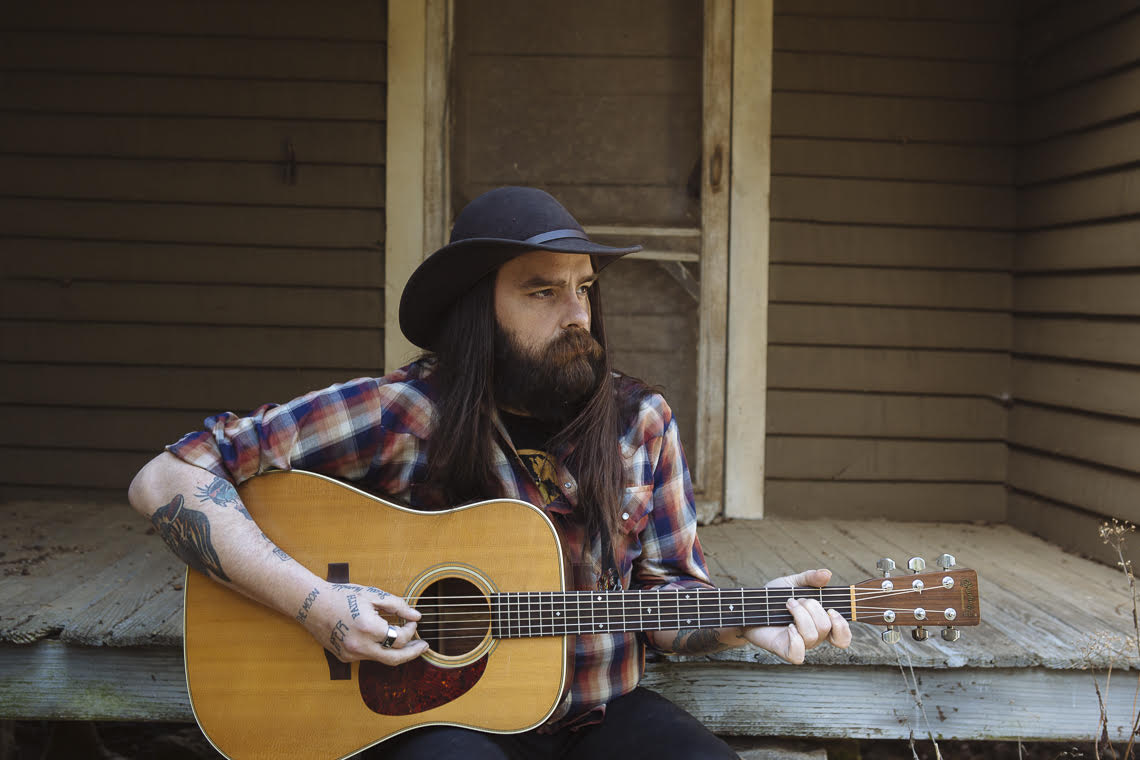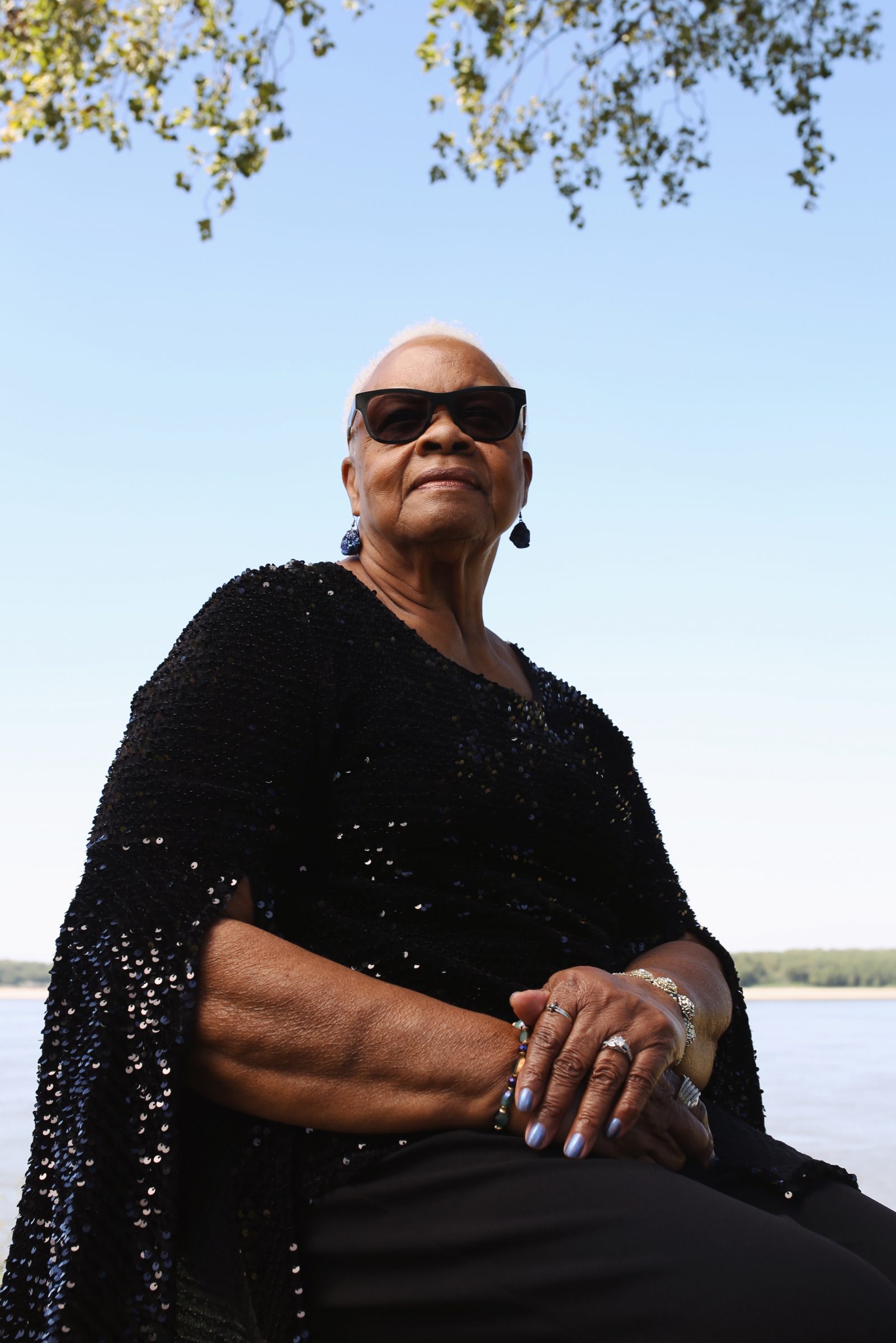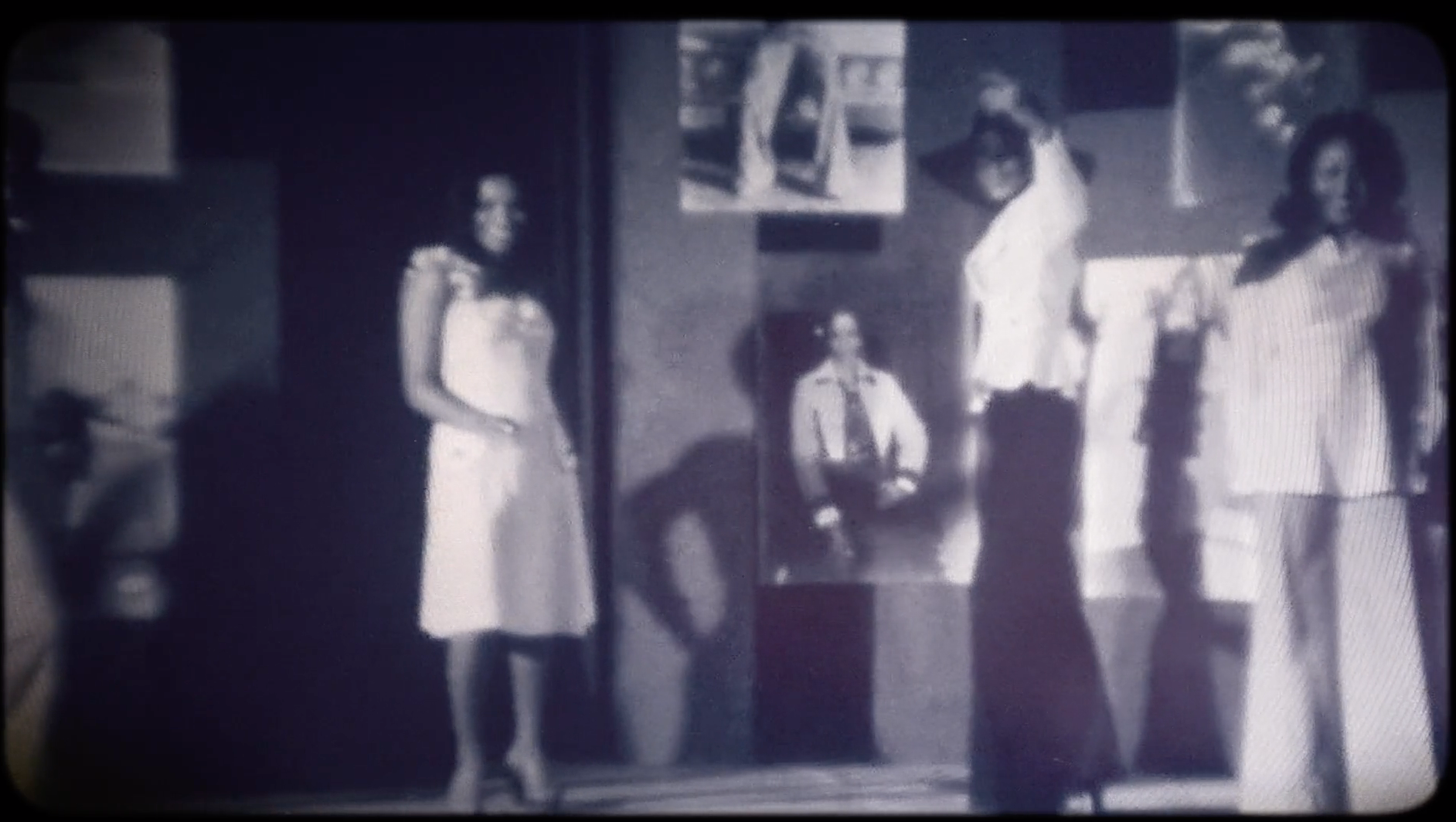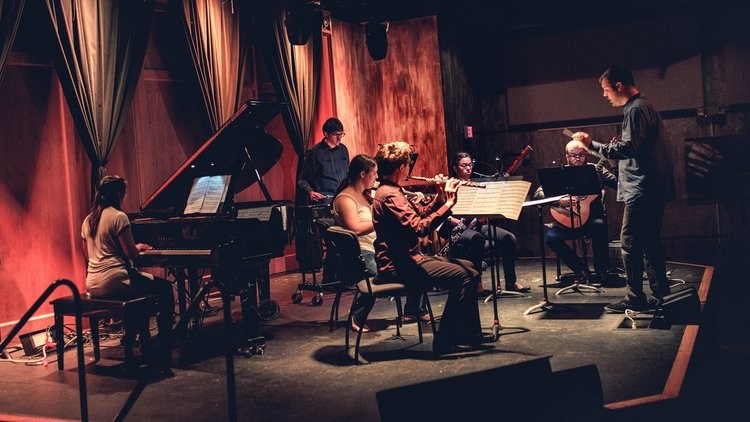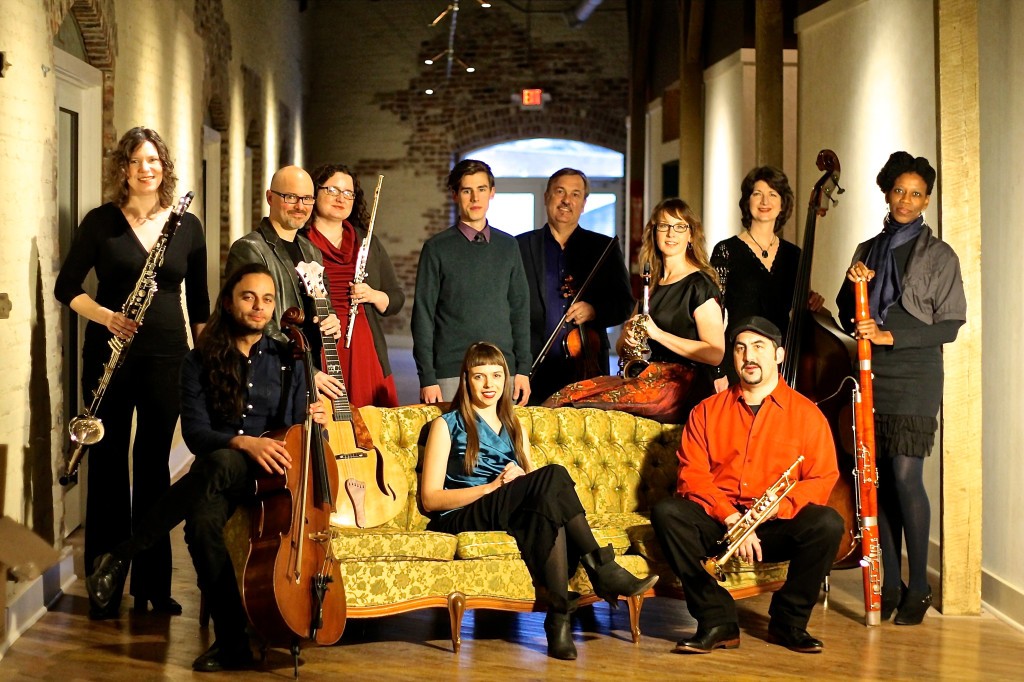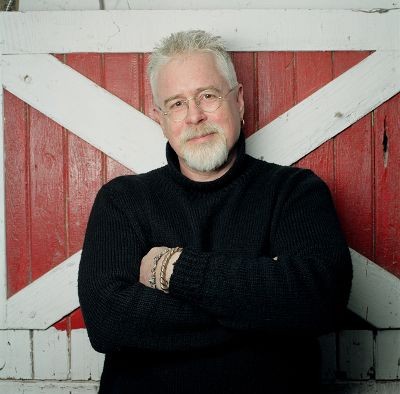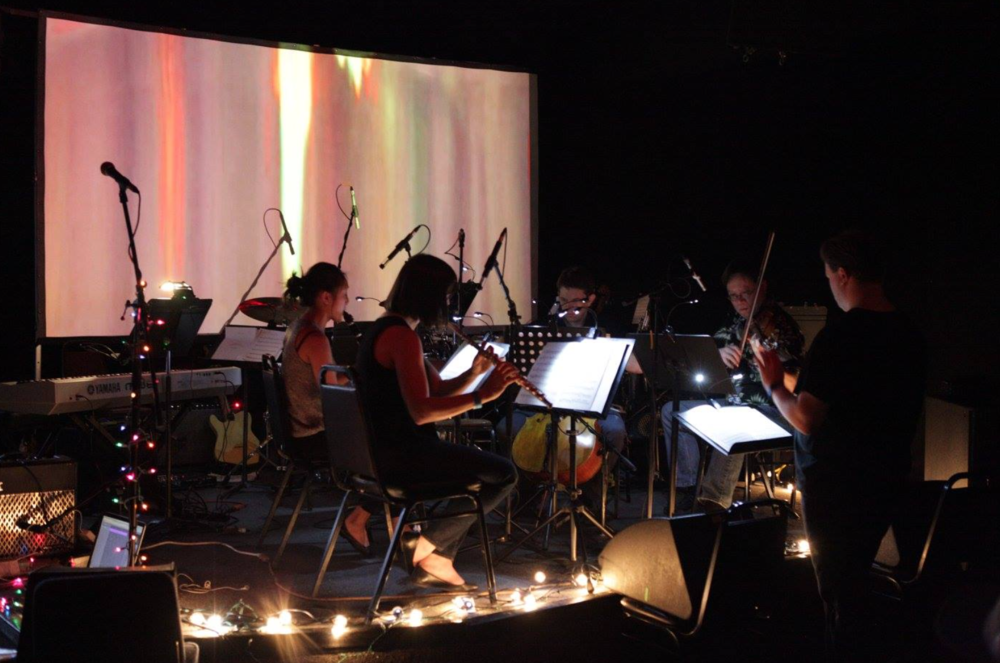According to 2024’s “The Infinite Dial” report by Edison Research, 47 percent of the U.S. population, 12 and older, listened to at least one podcast in the span of a month, up 12 percent from the year before. What can we say? People like their podcasts. So much so that there are millions of them. We tried Googling the exact number but got bogged down in the AI of it all, so we landed at millions … or at least hundreds of thousands.
What we can say with certainty is that a decent number of podcasts are being created right here in Memphis. Check out what a few local podcasters had to say in this week’s cover story, and take a peek at the sidebar to discover even more podcasts to add to your playlist.

Verbally Effective
If there’s a go-to expert in podcasting in Memphis, it’s Ena Esco. She’s the host of Verbally Effective, innovator in residence at Cossitt Library, founder of the PodBox Memphis Podcast Festival, and the wearer of many more hats in this new media landscape.
With a background in radio since graduating from LeMoyne-Owen College in 2001, Esco started her podcast in 2018. “With radio, you only have so many minutes that you can have a conversation,” she says, “and I wanted to extend those conversations through podcasting. And so I wanted it to be a podcast that intersected art, culture, politics, entertainment, with a Memphis focus.”

Her Verbally Effective became home for just that, with each episode, over 300 in total, in conversation with a Memphis changemaker — from National Civil Rights Museum president Russell Wigginton to Grammy Award-winning Crystal Nicole to therapist Brandy J. Flynn. “You just never know what people have gone through to be where they are today,” she says, “and to hear their stories lets me know that the type of work that I’m doing with podcasting is important because I know that their stories will resonate with other people.”
Esco’s goal, she says, is to elevate voices, whether that’s in her own podcast or through helping others create theirs. “So much is going on right now, especially right now, with people trying to silence voices, but we can utilize the new media platforms to get our messaging across.”
“With podcasting, anything is on the table,” adds Esco. “In podcasting, you can create your own situation. You can format your show however you want to format your show. You can monetize. You can build relationships with people that you probably never would.”
After building her audience with Verbally Effective, Esco drew the attention of Memphis Public Libraries’ leadership and before too long became its first-ever innovator in residence, coordinating free podcast programming at Cossitt Library, developing workshops, curating panels and shows, and working with podcasters individually. In her nearly three years at Cossitt, Esco has helped podcasters in a gamut of genres, from sports to lifestyle to travel. “When you get [people] into podcasting, you’re really building up their confidence in making them a stronger speaker, a better storyteller,” she says. “It just gives me joy to see people transform in their way.”
For her work through the library system, Esco earned an honorable mention from the Urban Libraries Council Innovation Awards in 2024. “It was a big deal because it afforded [the Memphis Public Libraries] the opportunity to receive a grant to bring in more innovators [in other areas],” she says.
This coming year, Esco hopes to produce 10 podcasts, with a focus on community podcasting. “It’s going to be quite the undertaking,” she says.
Also in 2025, Esco will lead digital radio, podcasting, and TV broadcasting programming for the recently reopened Lowery Communication Center at LeMoyne-Owen College. “This is a full-circle moment for me because I started my media career as a senior, and now I’m back at my alma mater, seeing the students in this particular subject matter, so I’m just blessed. I am really blessed.”
In September, she’ll host the PodBox Memphis Podcast Festival, an annual event with industry experts, panels, mixers, and more. She’ll also host quarterly meetups with established and potential podcasters throughout the year.
Find Esco on social media @enaesco. Verbally Effective, in addition to being available for streaming, is aired on WXYR on Tuesdays at noon. — Abigail Morici
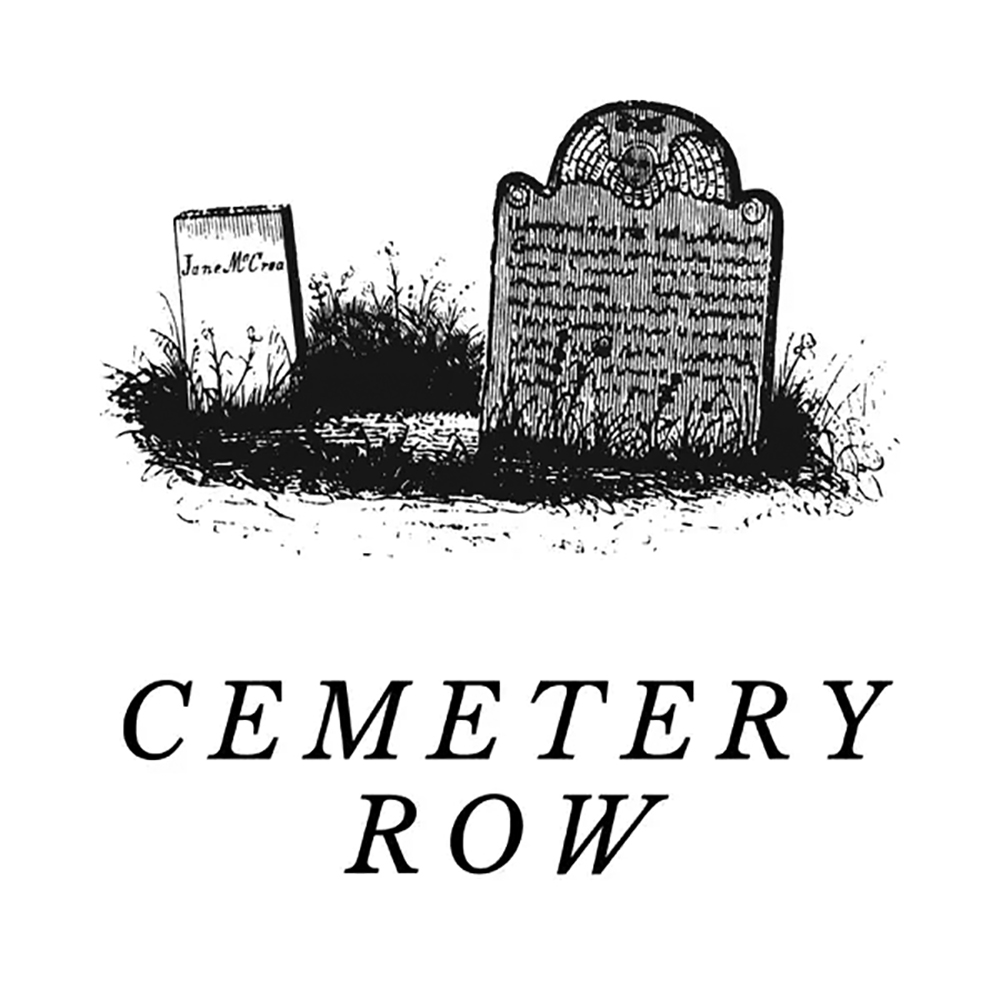
Cemetery Row
A deep and ominous bell tolls over the cold, lonely, windswept graveyard.
It’d be pretty scary, but the hosts of Cemetery Row are there to hold your hand and tell you it’s all okay. Then they start telling you the stories of some of the folks buried there and — before you know it, champ — you’re starting to have fun.
“Cemeteries are not scary places,” says Sheena Barnett, one of the podcast’s three hosts. “They’re not sad places. They can be, obviously if you’re going to where a loved one is buried. But I see them as places of love, places full of stories, places that need to be preserved.”
The sentiment is shared by hosts Lori Pope and Hannah Donegan. The trio of “spooky girls” met as Ole Miss journalism students, kept tight after school, and wanted to stay that way when Donegan moved to Chicago. Barnett volunteered at Elmwood Cemetery cleaning headstones and told the others about all the great stories out there. Cemetery Row became a way for them to connect and to hone their haunted proclivities.
Pope’s dad would tease her about “Rosie the ghost,” who was said to roam an old family cemetery on her grandparents’ farm. Barnett grew up on Unsolved Mysteries and going to cemeteries with her mother and grandmother. A “Jane Doe” headstone mystified a younger Donegan when seen in a graveyard in plain view of her Olive Branch Middle School.
That ominous bell really does toll to open each episode of Cemetery Row. The hosts introduce themselves, banter, connect, tell a few inside jokes, and they cuss … like a lot. The meat of the show, though, is true stories of the dead.
“Just like most people from history, she has parts of her life where she’s a total relatable badass, and then there’s parts where she kind of sucks a little bit,” Donagen says of occultist, ceremonial magician, and novelist Dion Fortune in an October episode called “Occultists, Psychics, and Cryptids.” “She was a rich, white lady in early 20th-century England. So, what are you gonna do?”
That episode also featured the stories of Simon Warner, a psychic and crime doctor, known as The Seer of Shelbyville (Tennessee), and some spooky tales from Idaho (a bit outside of the cemetery, strictly speaking, but right next door).
The hosts laugh, bomb each other with bon mots, and keep things casual. But they flex those journalism degrees in well-researched stories, written with a straight-ahead newspaper eloquence. Not every episode has a theme but some have featured athletes, LGBTQ folks, Black excellence, and more. One featured people named Dick.
Dial up Cemetery Row wherever you find podcasts. Pope, Doengan, and Barnett will have you skipping through the headstones in no time. — Toby Sells

Night Classy
Have you ever been curious about the deep intricacies of society that our history books never dreamed of covering? You know, like the 1950s quiz show scandal that unearthed rigging and resulted in congressional hearings? Or have you or a loved one been approached by a charming Nigerian prince who only needs your entire life savings to help him out? If you’re looking to dive more into his origin story (and the many ways he presents himself), or just looking to satiate your hunger for obscure knowledge, class is in session on the Night Classy podcast.
Hayley Madden and Katja Barnhart are two educators by day, taking their aptitude for knowledge from the classroom to the mic. Both women met through Teach For America (TFA) and bonded over The Office — facilitated by the “TFA experience,” which Madden explains is like an “extension of college.”
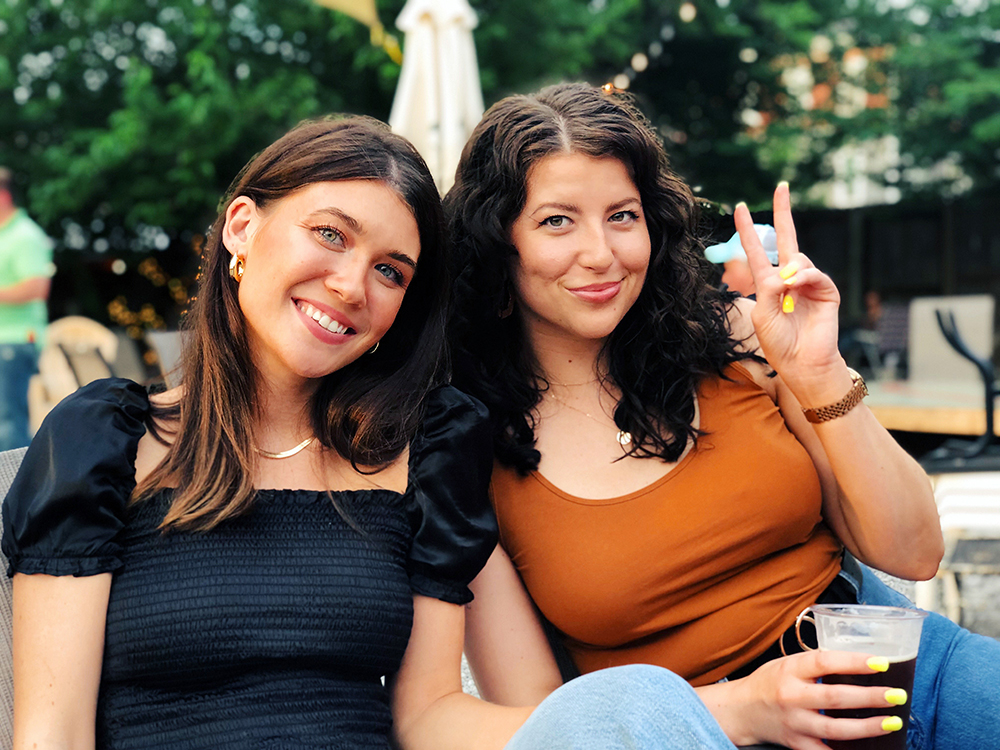
Madden says the podcast was originally Barnhart’s idea, which she says stemmed from her “obsession” with podcasts, and after moving to a new place, this seemed like the perfect new hobby to take up. Barnhart remembers thinking, “This is it; this is going to be good.”
The podcast’s future was further solidified when Barnhart met her longtime boyfriend Alec Ogg, who’s a podcast producer by trade and offered to produce the podcast.
As a child, Madden says she liked to experiment with different things such as making mud pies and catching frogs. “Maybe not researching like I do now as an adult, but just getting into things is something I’ve always been into,” she adds.
Barnhart says she’s always been obsessed with history, always finding herself engrossed in historical fiction. She then found herself obtaining a history degree, but ended up teaching math.
“[I] didn’t really have an outlet to read about the kind of things I wanted to aside from my spare time, so the podcast has been a good way to scratch that itch,” Barnhart says.
During each episode, the hosts pick two stories that they’ve each researched with detailed notes about topics that can be defined as “oddities and curiosities you’ve never learned in school.” As they approach their 250th episode on their main feed, the ladies have covered brain eating amoebas, the lore of America’s Next Top Model, and the Ant Hill Kids Cult to name a few.
“It had to be something we wanted to research,” Madden says. “If it’s not fun on the front end, then it’s not going to be fun for us to actually do, execute, and listen to later.”
Barnhart also adds that they didn’t want to limit themselves to true crime, paranormal, and reality TV. While they’re interested in all of these things, diversifying their content keeps the experience fresh.
“I feel like if you have to read about it every single week, you’re going to hate it,” Barnhart explains. “We wanted options.”
“We were like, ‘What’s our hook?’” Madden adds. “Well, we’re teachers.” — Kailynn Johnson
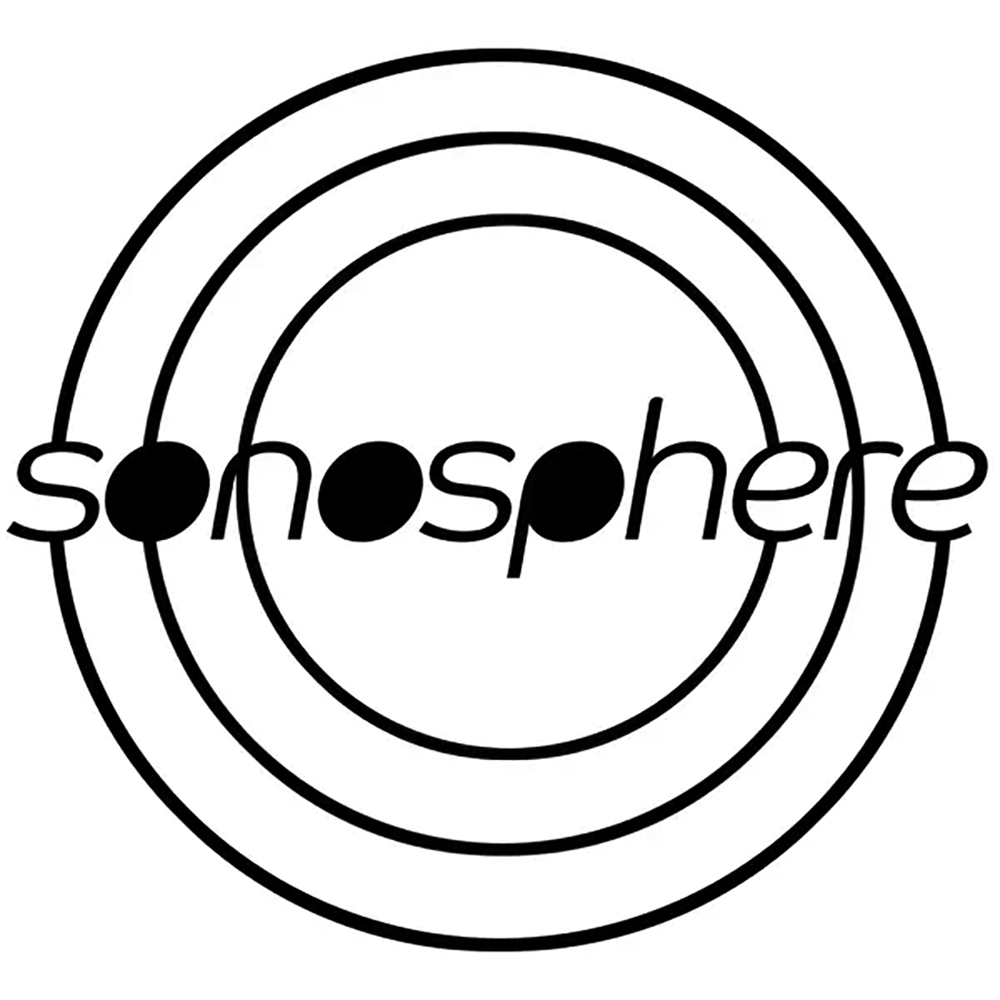
Sonosphere
Sonosphere is more than just a podcast, and had been even before it became a radio show on WYXR (every Monday at 4 p.m.). More than most podcasts, perhaps, it was founded with a mission: fostering more appreciation of unconventional music in Memphis. As co-founder Amy Schaftlein says, the goal of Sonosphere was “highlighting the sort of experimental bands that don’t really fit into a genre, but have always brought intriguing and interesting sounds. Not everybody could tell if they liked or not. You know, like when you try a new food, you’re kind of like, ‘I don’t know if I like that.’ But you might start to like it a lot more as you try it in different ways.”
Realizing this would take more than a mere podcast, Schaftlein started the nonprofit Sonosphere Inc. with then-fellow president/CEO Christopher Williams in 2017, intent on programming live performances and lectures, music festivals, and audio documentaries. Thus, right from the beginning, Sonosphere the podcast had a parallel production series known as Sound Observations. “A lot of the Sound Observations series that we brought to Memphis back in 2017, ’18, and ’19 highlighted experimental artists like Wu Fei, who plays a very ancient Chinese instrument.”
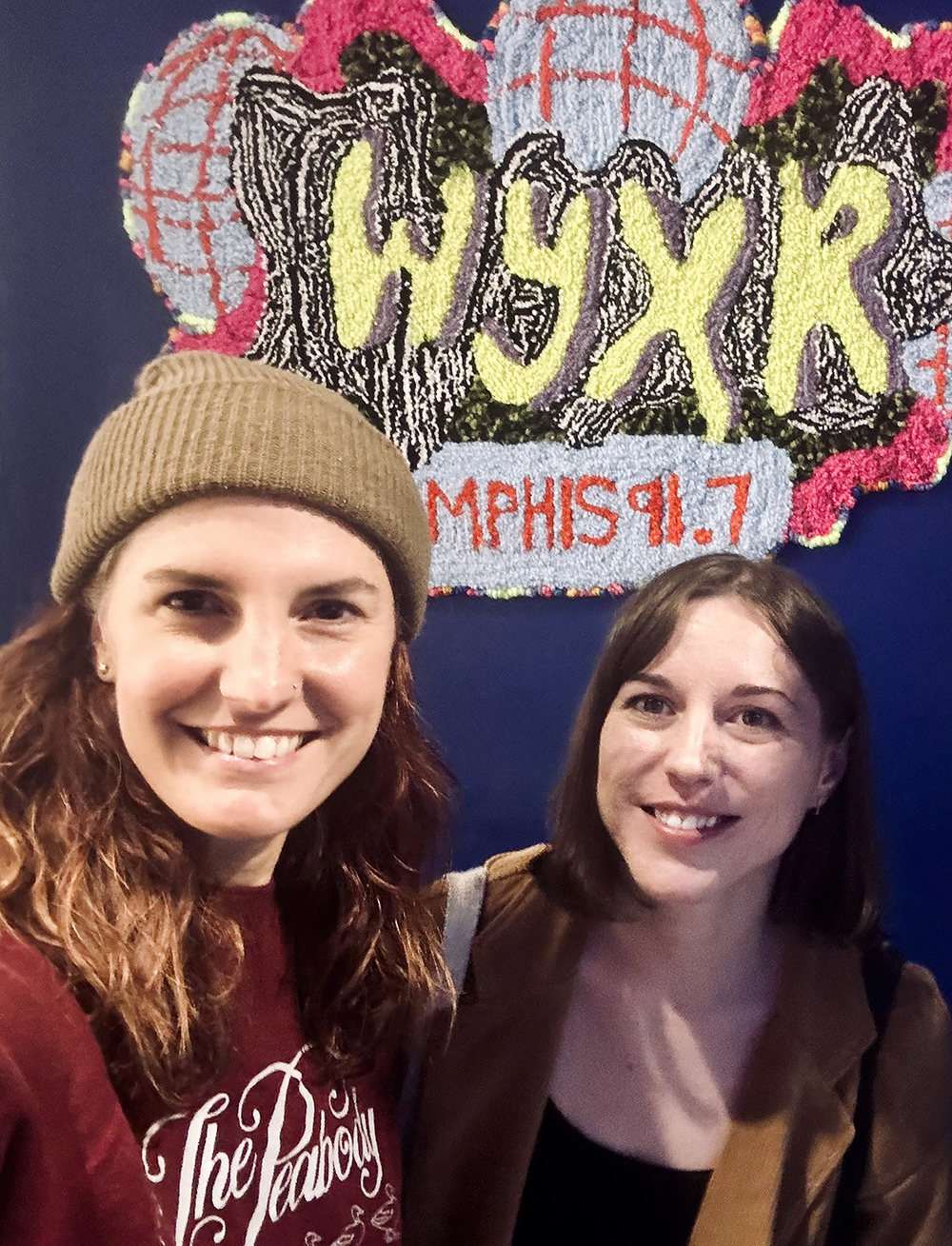
At the time, Schaftlein says, Crosstown Arts had not yet leaned into the kind of adventurous programming that they’re now known for. But as Crosstown Arts evolved, with Memphis Symphony Orchestra flutist and Blueshift Ensemble member Jenny Davis taking on music programming for a time, there was less of a need for the Sound Observations series, and Sonosphere the podcast came to the fore. When Williams moved away, Schaftlein, after hosting solo for a while, thought that Davis would be the perfect partner.
“Jenny worked with Chris and I on our Sound Observations when she was at Crosstown Arts,” says Schaftlein. “And she also created the Continuum Fest [a local celebration of New Music and avant garde classical compositions], which she invited Sonosphere to ‘sponsor’ — which really meant we covered it for them — and we came up with some content for the fest. We’ve always worked with Jenny through Crosstown Arts, and so she’s been a part of the podcast, tangentially, for a while. And so it just seemed like a really good fit.”
This was also a good way for Davis to keep her hand in experimental music as she moved on to become the executive director of the Memphis Youth Symphony Program (MYSP). A recent episode of the podcast, for example, focused solely on last year’s Continuum Fest, staged at the Beethoven Club.
Meanwhile, the podcast evolved into a radio show when WYXR began broadcasting in October 2020. And while that slowed the podcast production a bit, it’s really all of a piece. Indeed, as Schaftlein says, “I actually worked for WEVL when I was in college and I had a show on the station. That’s part of what prompted Sonosphere. I really wanted a radio show on WEVL, and they took a while to get back to me, and so I just kind of started it. I was like, ‘We can do this from home!’ You know, podcasting was a thing. It wasn’t as big as now, but it was still a thing then. So we just went ahead and did it ourselves.” — Alex Greene
For your listening pleasure:
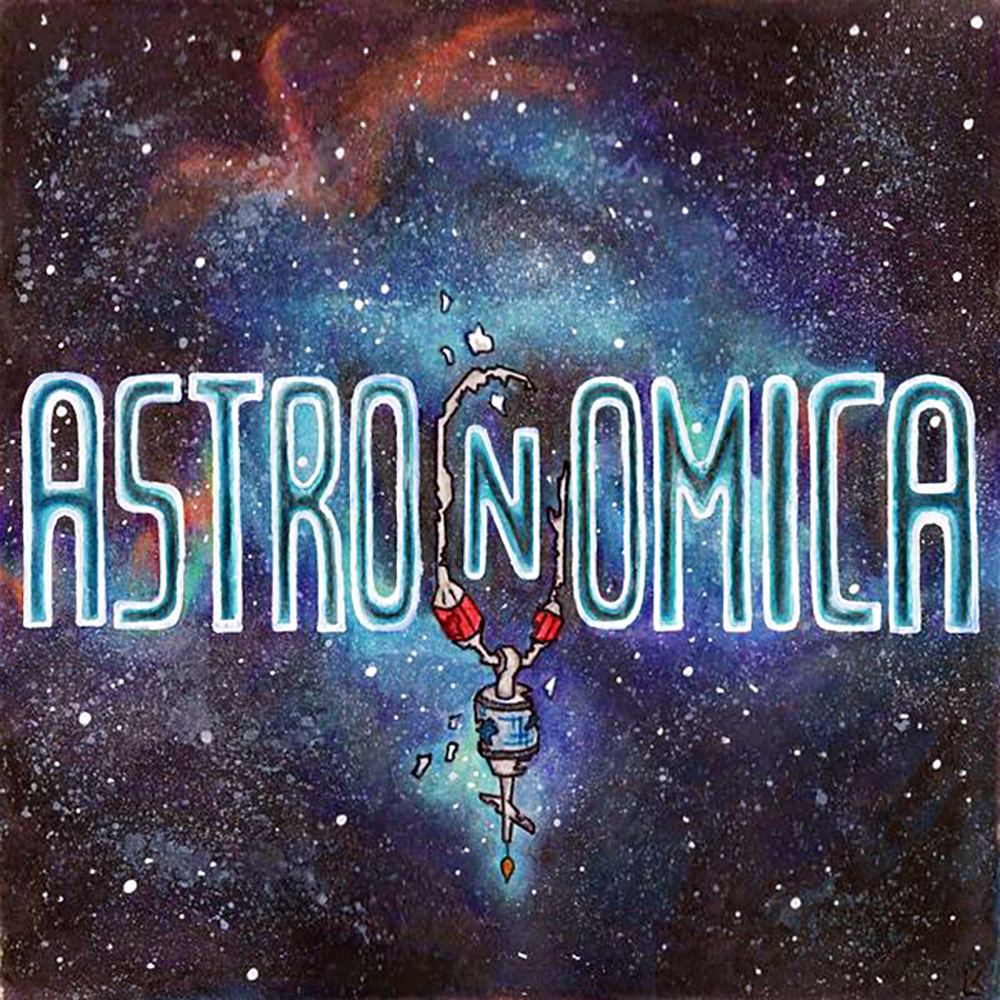
Astronomica
Join a group of nerds as they crew the definitely-not-piloted-by-a-rogue-AI ship The Admiral Grace in a science-fiction OSR actual play podcast using the Stars Without Number RPG system.
Black Is America
Dominic Lawson highlights little-known African-American figures and stories.
Champions of the Lost Causes
Marvin Stockwell talks to folks across the country about their success and setbacks.
Got Points Podcast
Ashling Woolley and Tiffani Denham teach listeners how to build up travel points quickly, how to keep a high bank of points, and how to use these points to maximize every benefit.
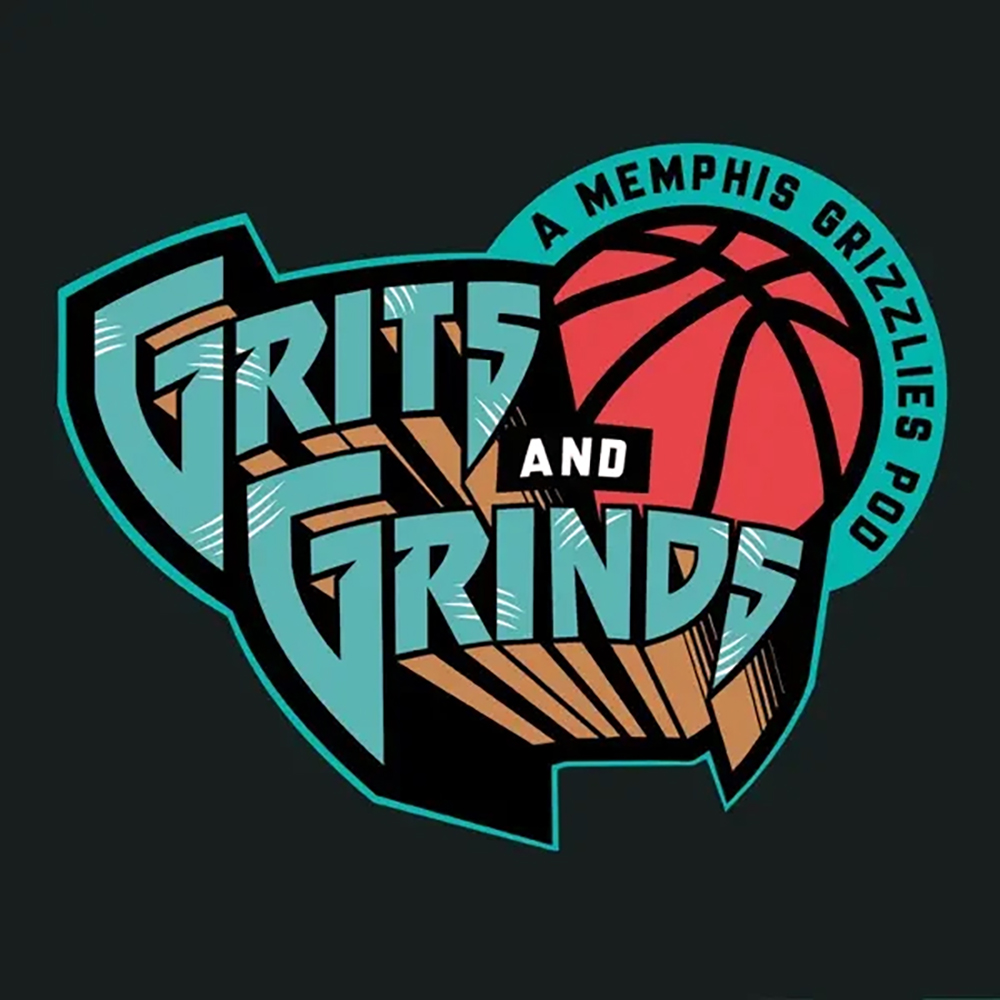
Grits and Grinds: Memphis Grizzlies
Keith Parish covers the Grizzlies year-round with in-depth analysis.
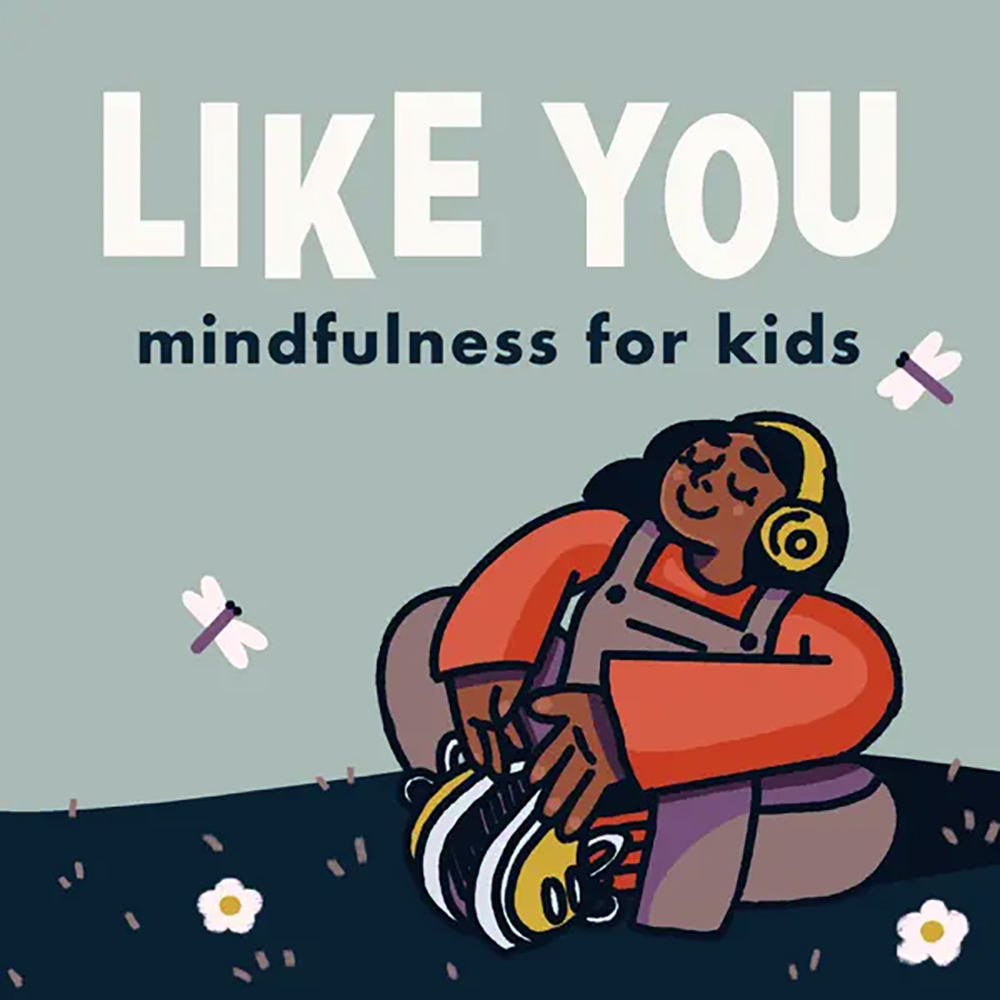
Like You: Mindfulness for Kids
Noah Glenn uses breathing, affirmations, music, and imagination to support social-emotional health and mental wellness for kids.
Memphis Flyer Video Podcast
Oh, hello, that’s us! Each week, Chris McCoy and a co-host take you through the paper and give you insight into the madness that goes on at the Memphis Flyer.
The Permanent Record
Just City’s podcast features conversations about the criminal justice system and how individuals can work to make it smaller, fairer, and better for everyone.
